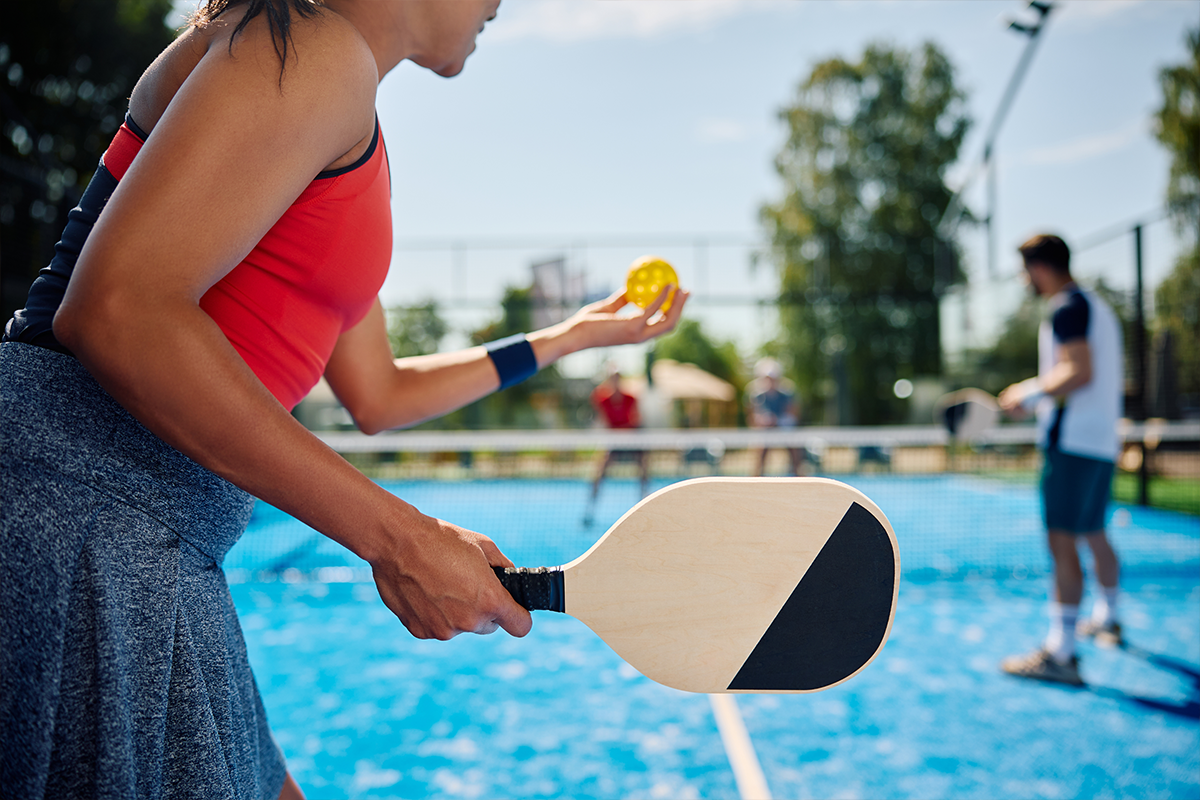Advertisement
The Philosophy of Sports and Self-Expression
Simon Whitfield is a four-time Olympian—he brought home Canada’s first-ever gold medal in the triathlon—and the all-time most decorated Canadian triathlete. But 22 years after stepping onto his first Olympic podium, Whitfield sees sport as more than just a competition. It’s about self-expression, living in the moment, and being your best self. Advertisement728×90 LeaderboardSelf-expression through … Continued
Fact-Checked
This article has been written and fact-checked by experts in the field.

Simon Whitfield is a four-time Olympian—he brought home Canada’s first-ever gold medal in the triathlon—and the all-time most decorated Canadian triathlete. But 22 years after stepping onto his first Olympic podium, Whitfield sees sport as more than just a competition. It’s about self-expression, living in the moment, and being your best self.
Advertisement
Self-expression through sport
We sat down with Whitfield just hours after he finished hiking the gruelling, yet scenic, West Coast Trail in BC’s Pacific Rim National Park. While retired from his professional career as a competitive triathlete, physical movement and sports remain Whitfield’s go-to for self-expression.
“I grew up with a great love for being outside and active,” says Whitfield. “I appreciate the joy of sport because it lets you express yourself through hard work.”
Self-expression refers to your ability to express your emotions, ideas, and personality through whatever you’re doing. When we’re able to fully express ourselves, we can be more authentic, feel more confident, embrace a higher level of self-esteem, and connect to our true selves and the world around us.
The concept is often connected to artistic endeavours—think painting, poetry, or theatre. But if actions speak louder than words, and sports are all about action, shouldn’t we rethink this stereotype?
For Whitfield, sport is a form of poetry and theatre.
Whitfield made his Olympic debut at Sydney 2000. He started the triathlon’s running portion in 24th place—and won gold. In the next few years, he competed at several more Olympics, won numerous World Cups, and retired from competing in 2013. Whitfield was recently inducted into the World Triathlon Hall of Fame and Canada’s Olympic Hall of Fame.
Whitfield’s road to glory
Advertisement
The playing field is your theatre
“I’ve always had this foundation of understanding that sport was all patently ridiculous anyway, so just embrace it,” Whitfield laughs. Whatever sport you choose, it’s a series of stage characters—you, your teammates, and your opponents—carrying out random actions with objects to which you ascribe make-believe value.
“At the end of the day,” he says, “soccer, for example, is just a rectangle thing you call a net with a ball that you’re trying to push through.”
From this philosophical viewpoint, Whitfield sees sport as self-expressive art—not a “win” or “lose” situation.
“When I crossed the finish line at Beijing 2008 in second, I had this wave of disappointment,” says Whitfield. “I look up, and my dad is hanging out of the grandstands. ‘Bloody beauty,’ he said. I told him, ‘Dad, I could have done better.’ He replied, ‘No, you just learned the poetry of sport. Eight years ago, you beat a German, who inspired another German to try harder, and that guy just beat you! It’s poetry.’
“It’s the beauty of these narratives and these beautiful little threads we can find in all of this, which gives us meaning,” explains Whitfield. “It makes us feel like there’s some purpose to all this. My mom used to always remind me, ‘You’re just a kid running around in your Speedo.’
“That’s the theatre of sport right there,” he chuckles.
Advertisement
Putting Whitfield’s philosophy into play
Today, Whitfield is a dad of two daughters. He offers sage advice to young and old who want to find the joy of self-expression through sport.
Advertisement
Make it about experiences and not outcomes
He says when you reframe sports as not something where you have to win, but simply a safe space to express yourself through movement, it completely changes the game.
“My parents would tell me to just go express yourself whatever it is you do,” says Whitfield. “Just have a love of sport, whether that was my childhood backyard or the pothole on the street that was our centre ice. It was truly about embracing the idea of play.
“And when you appreciate that playful self-expression, it allows you to let go of the idea that success is measured in how you ‘won’ or ‘lost.’ Rather, it’s about the hard work you do, and the element of being completely present in what you’re doing, and enjoying the sport itself.”
Advertisement
Find the joy in what you play
Whitfield’s children are part of a running club. Sometimes they race. Sometimes they simply walk and tell their teammates stories.
“It’s fantastic,” he says. “It’s all about the joy of being outside and running, simply because humans can run for no other reason. The fundamental teaching is that there is a real joy in just being able to run and move your body. That’s impacted how we convey to our kids the joy of sport.”
Advertisement
Cheer for the effort, not the trophy
After a game, Whitfield’s parents wouldn’t ask him if he won. They’d ask him if he tried his best. He strives to embody that with his kids.
“There are ‘winners’—people who come first in this arbitrary thing we made up,” he says. “But my favourite thing to tell my kids is, ‘Wow, that’s the fastest time anyone has ever done on this day at this time.’”
He even loves cheering for the kids on his children’s opposing teams and says he often gets quizzical looks from the other parents. “I think that just frees kids to know that at the end of the day, it doesn’t actually matter,” he laughs. “It’s just about the theatre. It’s just about being present and not thinking about anything else.
“At the end of the day, what my parents wanted to see me do was express myself through hard work,” says Whitfield. “They did not care how I did as long as I expressed myself through hard effort. It gives you so much freedom to … stand on the starting line and realize, ‘Okay, my family isn’t going to be let down. They just want me to express myself, and whatever the outcome is the outcome.’”
And that’s a powerful lesson for every other area of our lives.
Go beyond basketball, soccer, and other mainstream sports. These competitive activities are crowd pleasers for all ages. Started in 2014, Quidditch Canada lets you channel your inner Harry Potter. Canada currently hosts 22 teams from coast to coast. It’s like non-contact football with two seven-person teams and a flying disc or Frisbee. This sport will challenge your hand-eye coordination. Bullseye! Can you think of a more Canadian way to spend the warmer months? Self-expression through sports and art collide with aerial and acrobatic classes and competitions.
Think outside the track
Quidditch
Ultimate
Archery
Field hockey
Circus arts





